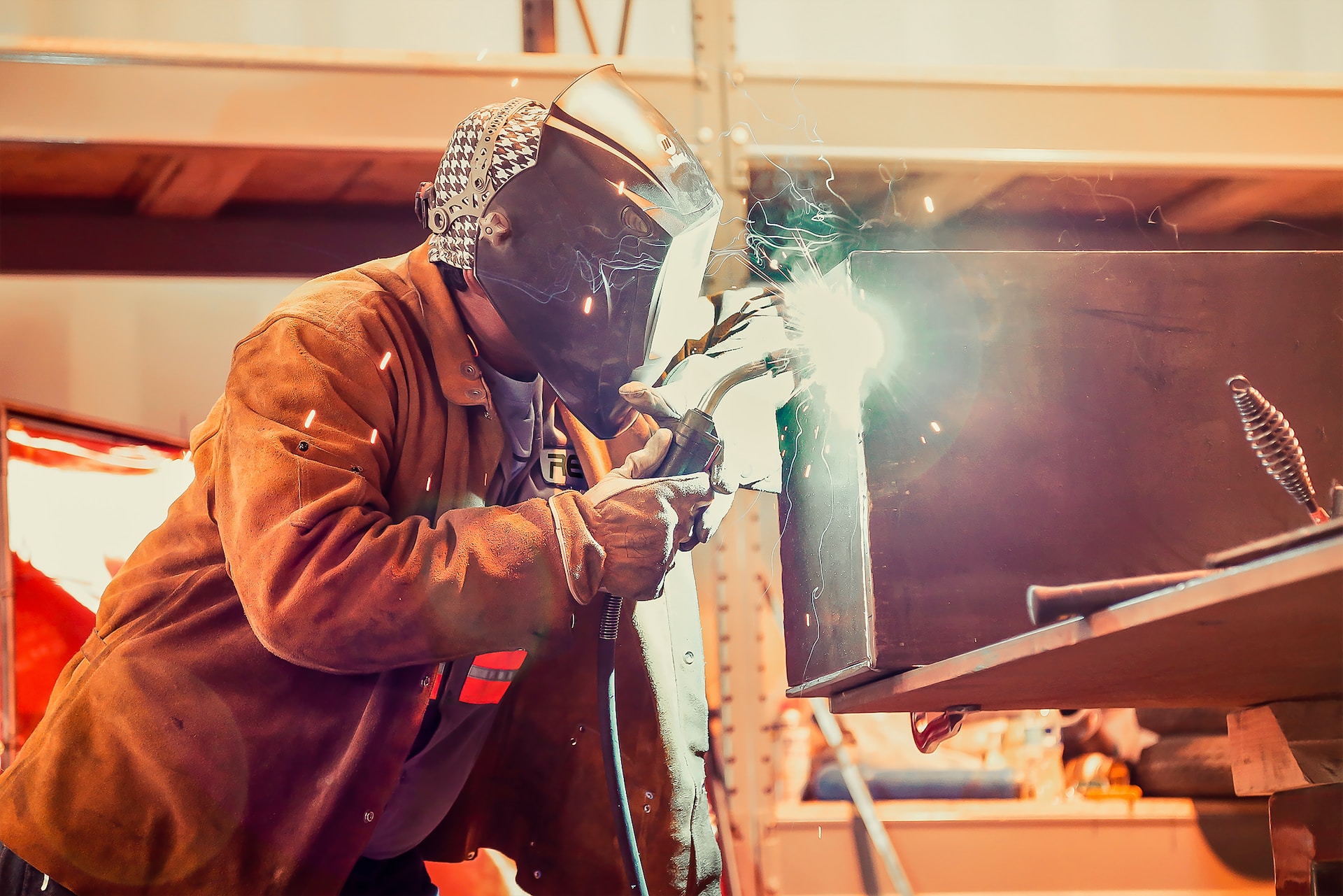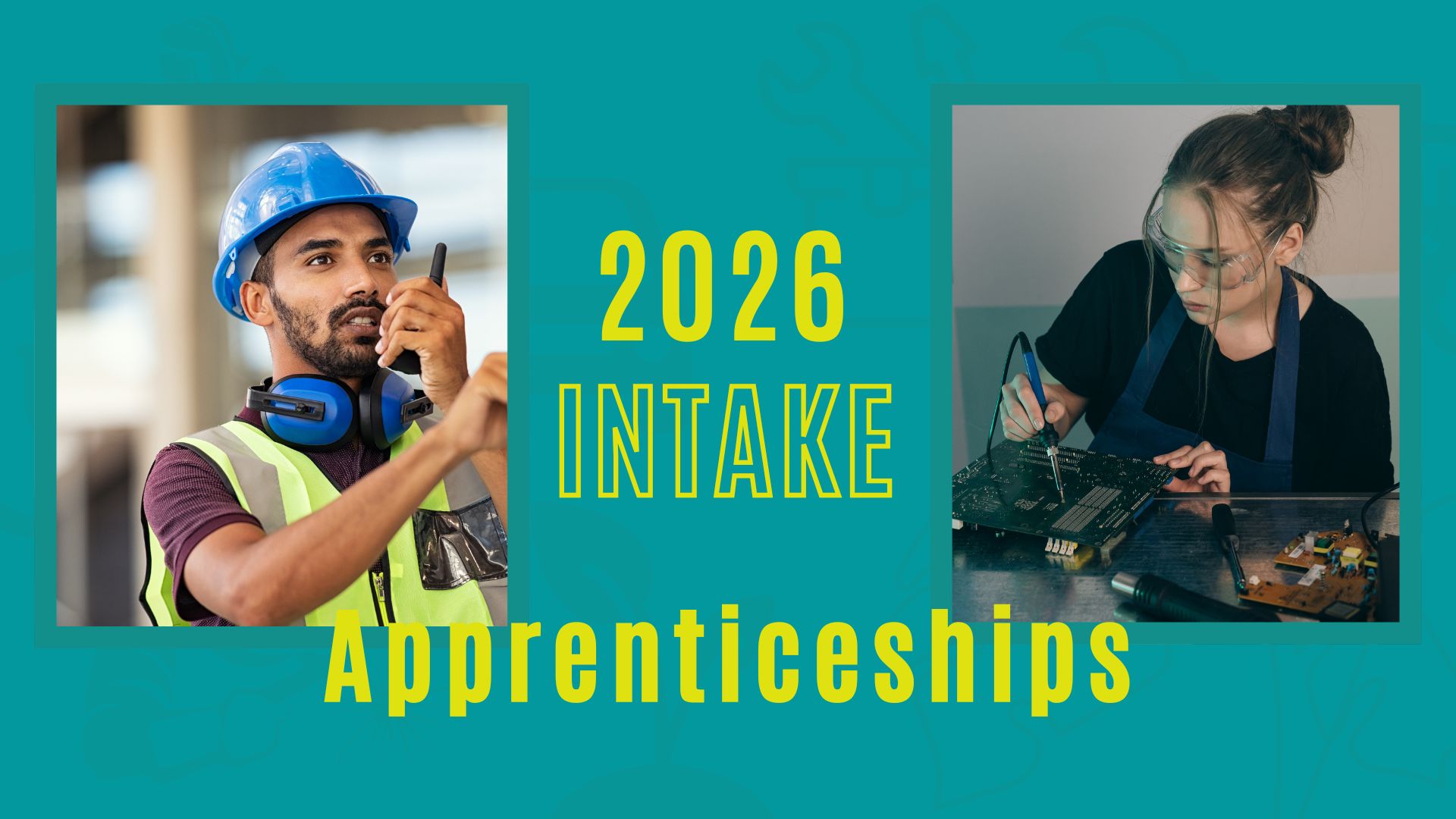Certificate III in Engineering Fabrication Trade

The Certificate III In Engineering Fabrication
A Certificate III engineering fabrication trade in Light Fabrication is a crucial qualification designed to teach apprentices the necessary skills and knowledge to become sheet metal worker. This qualification covers an array of tasks essential for shaping and assembling components made from light metals, interpreting technical drawings, and utilising diverse fabrication techniques.
Sheet metal workers create, install and repair products made from sheet metal. Working in various settings, from small workshops to large industrial factories.
What is Learned In A Metal Fabrication Apprenticeship?
The main tasks apprentices learn during their Metal fabrication apprenticeship include:
- Handling Metal:
Apprentices will learn how to handle various types of metal, which involves understanding the characteristics and properties of different metals. This includes knowledge of their malleability, hardness, and other physical attributes, allowing efficient manipulation and use in fabrication processes.
- Working with Light Metal Fabrications:
Learning how to craft and manipulate light metal structures involves the creation of smaller and less complex metal products. This task includes shaping, bending, cutting, and assembling light metal materials to form specific structures or components.
- Thermal Cutting:
Learn thermal cutting techniques that involve precision cutting of metal using methods such as oxy-fuel, plasma, or laser cutting.
- Measuring and Technical Drawing:
Precision in measuring and interpreting technical drawings involves accurately understanding and implementing design specifications. This task includes measuring tools and reading technical drawings to ensure precise fabrication according to specified dimensions and requirements.
- Silver Soldering:
Acquire skills in silver soldering methods involving joining metal components using a filler metal (silver solder) that melts at lower temperatures.
- Use of Workshop Machines:
The ability to use workshop machinery involves operating a variety of tools and machines, such as power hammers, presses, and metal cutting/shaping tools.
- TIG Welding:
Expertise in Tungsten Inert Gas welding techniques involves using a non-consumable tungsten electrode to create precise and high-quality welds on various metal types
The Apprentice Profile
The sheet metal worker, also known as a Metal fabricator or Welder, needs to refine skills in precision, accuracy, and craftsmanship essential for mastering the art of light fabrication.
If you’re considering a career in the light fabrication industry and want to complete a cert 3 engineering fabrication, here are some essential skills and interests that can be recommended to start a career in the industry.
- People who have an interest in practical and hands-on work
- Strong problem-solving skills
- Workshop and site-based environments
- If you like welding
- Working with metals and machines
- Critical thinking.
What is the difference between light and heavy fabrication?
While they move in the same industry, light and heavy fabrication focuses on different specialisations.
Light Fabrication: This involves crafting smaller and more intricate metal products such as precision instruments, electronic components, household appliances, and specific automotive parts.
Heavy Fabrication: This focuses on larger and more complex structures, including industrial machinery, infrastructure components, mining and earthmoving equipment, as well as shipbuilding and aerospace structures.
The main difference lies in the scale and intricacy of the products. Light fabrication emphasises smaller, detailed items, while heavy fabrication deals with larger and more intricate structures required for critical industries and significant construction projects.
Future Career Opportunities
Completing a Certificate in engineering fabrication trade opens doors to many career opportunities across diverse industries. Once you complete your apprenticeship, students can opt for more specialisation certifications.
- Certificate IV in Engineering
- Diploma of Engineering
The Industry of Fabrication Trade
The engineering fabrication trade industry continues to keep growing. The need for qualified apprentices in this field remains consistent, promising a strong and sustainable career trajectory. (jobsandskills.gov.au)
The industry is expected to grow 10% by 2026, and the majority of workers (85%) work full-time hours, meaning there are opportunities for stable employment.
What Do We Help With?
At 130apprentice, we support apprentices and trainees at every step. If you want to start a career in the light fabrication industry and need help completing your Certificate III in engineering apprenticeship, we are here to support you.
We provide guidance on wages, allowances, annual leave, and loading, cover TAFE/RTO fees, offer mentorship and continuous support, and ensure strict compliance with Workplace Health and Safety (WHS) regulations by providing Personal Protective Equipment (PPE).
The 1300apprentice Difference
At 1300apprentice, we pride ourselves on supporting companies and apprentices across multiple industries.
Discover our services backed up by our industry expertise, fostering a nurturing environment for people embarking on their career journey in the dynamic field of engineering fabrication trade or a different traineeship.
Tasks
- Handle metal
- Work with light metal fabrications
- Thermal cutting
- Measuring and technical drawing
- Silver soldering
- Use workshop machines
- TIG welding
Future prospects
- Certificate IV in Engineering
- Diploma of Engineering
Also known as
- Metal fabricator
- Welder
- Sheetie
- Sheetmetal worker
If you like
- Workshop and site based environments
- Welding
- Practical hands-on work
- Working with metals and machines
- Critical thinking
You may also like
We look after
- Wages
- Allowances
- Annual leave & annual leave Loading
- TAFE/RTO fees
- Mentoring & support
- WHS/PPE
Fact
There are over 70,000 people employed in the steel industry in Australia. Employment in this industry is expected to grow strongly. jobsandskills.gov.au
Our Recent Jobs
Certificate III Civil Construction, apprentice, Ryde, NSW
Are you looking to become qualified in Civil Construction? Here is a wonderful opportunity to do all of this and have a wonderful career ahead!

Early Offer Apprentice Intake 2026, NSW, ACT
🚀 Finish School With a Career Locked In and Enjoy The Holidays – Early Offer Apprenticeships Commencing January 2026 - Apply Now “Tomorrow Needs skills! - Tomorrow Needs You! - Let’s Talk Today!”

Engineering – Mechanical Trade, 1st – 3rd year Apprenticeship, Padstow, NSW
Kickstart or Advance Your Career in Engineering! – with 1300apprentice
